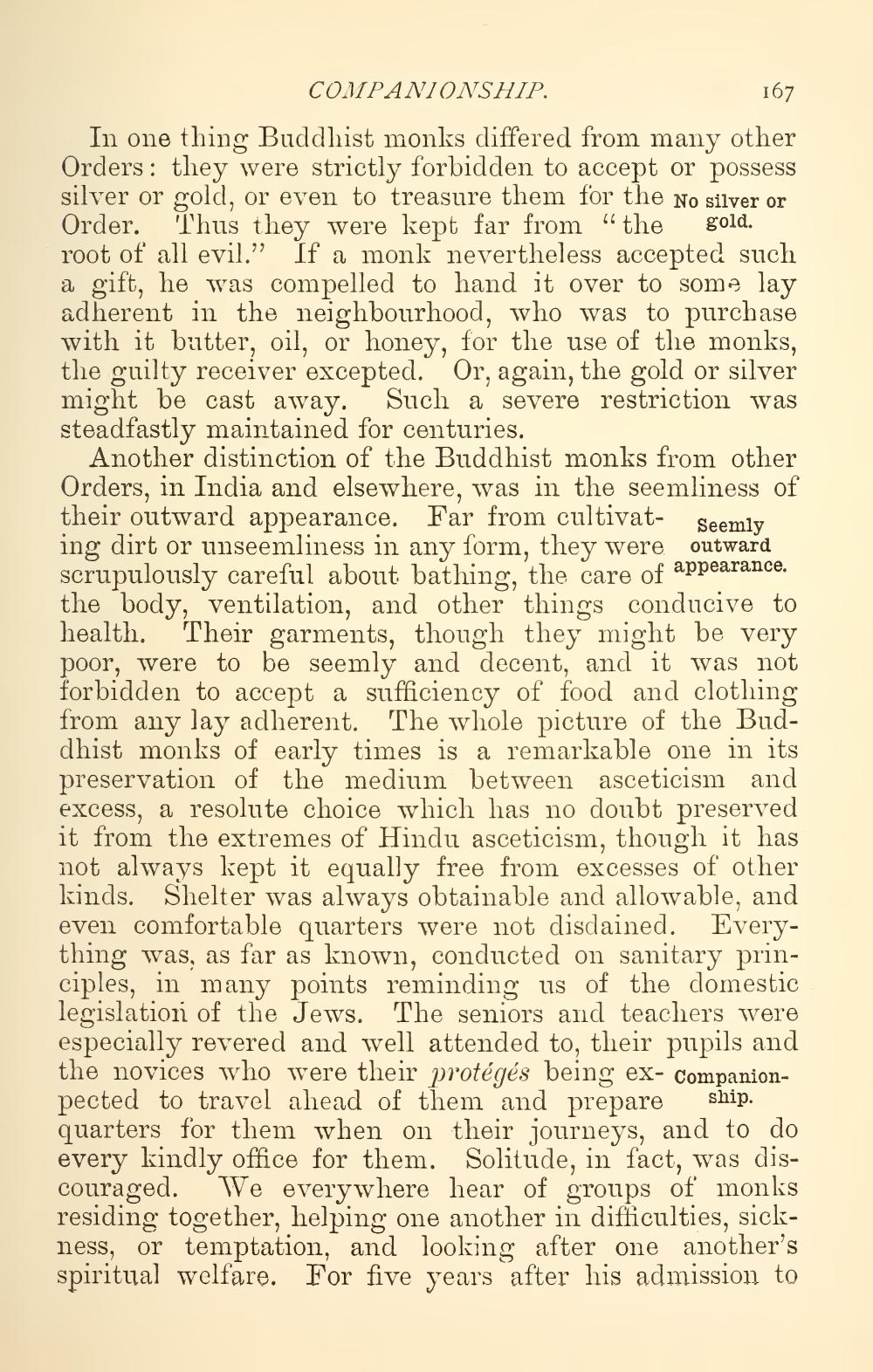________________
COMPANIONSHIP.
167
In one thing Buddhist monks differed from many other Orders: they were strictly forbidden to accept or possess silver or gold, or even to treasure them for the No silver or Order. Thus they were kept far from “the gold. root of all evil." If a monk nevertheless accepted such a gift, he was compelled to hand it over to somə lay adherent in the neighbourhood, who was to purchase with it butter, oil, or honey, for the use of the monks, the guilty receiver excepted. Or, again, the gold or silver might be cast away. Such a severe restriction was steadfastly maintained for centuries.
Another distinction of the Buddhist monks from other Orders, in India and elsewhere, was in the seemliness of their outward appearance. Far from cultivat- Seemly ing dirt or unseemliness in any form, they were outward scrupulously careful about bathing, the care of appearance. the body, ventilation, and other things conducive to health. Their garments, though they might be very poor, were to be seemly and decent, and it was not forbidden to accept a sufficiency of food and clothing from any lay adherent. The whole picture of the Buddhist monks of early times is a remarkable one in its preservation of the medium between asceticism and excess, a resolute choice which has no doubt preserved it from the extremes of Hindu asceticism, though it has not always kept it equally free from excesses of other kinds. Shelter was always obtainable and allowable, and even comfortable quarters were not disdained. Everything was, as far as known, conducted on sanitary principles, in many points reminding us of the domestic legislation of the Jews. The seniors and teachers were especially revered and well attended to, their pupils and the novices who were their protégés being ex- Companionpected to travel ahead of them and prepare ship. quarters for them when on their journeys, and to do every kindly office for them. Solitude, in fact, was discouraged. We everywhere hear of groups of monks residing together, helping one another in difficulties, sickness, or temptation, and looking after one another's spiritual welfare. For five years after his admission to




